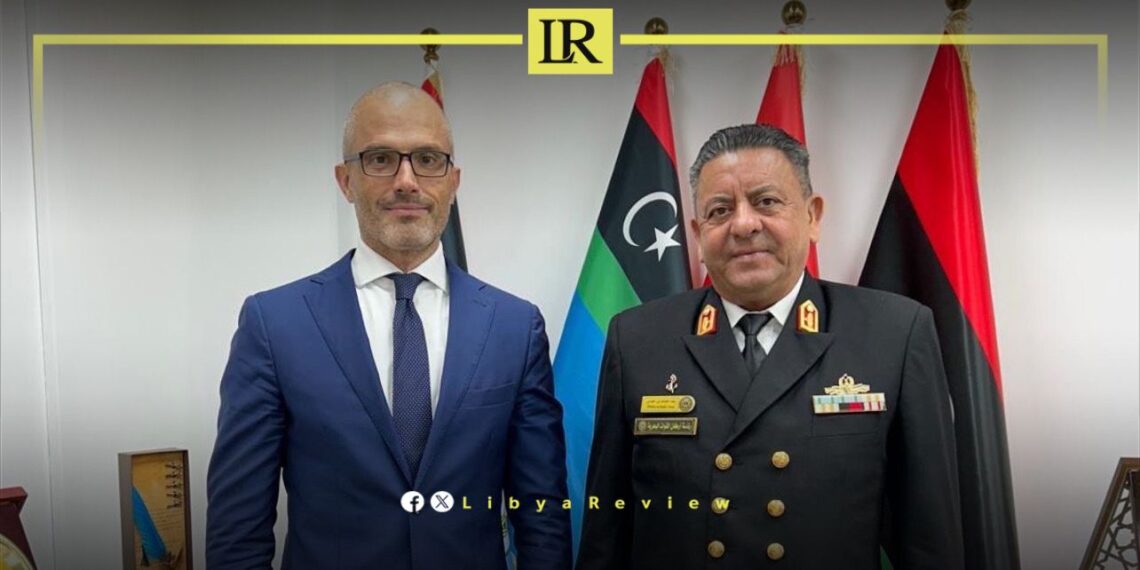The EU envoy to Libya, Nichola Orlando, met with Libyan Coast Guard Commander, Rear Admiral Reda Issa, in Tripoli.
Orlando stressed the importance of compliance with international law, proportionality, and human rights requirements in conducting search and rescue operations at sea.
He added that they reviewed the partnership aimed at saving lives at sea and improving Libya’s border management, identifying areas to enhance cooperation, build Libya’s capacities, and comply with human rights.
Meanwhile, the Libyan Coast Guard Commander called for improved coordination with all relevant parties to prevent incidents.
Earlier this week, officials from the Ministries of Foreign Affairs, Defense, and Interior of the Libyan Government of National Unity (GNU) engaged with EU Commission experts to address illegal migration and its associated challenges.
Abdulrahman Khimada, Director of European Affairs at the GNU Foreign Ministry, and Nicola Orlando, Head of the EU Mission to Libya, convened a video conference to tackle these issues.
The meeting underscored the necessity of collaborative efforts and the enhancement of mechanisms and tools to combat irregular migration, aligning with the current political and security conditions in the African coastal region.
Notably, an Italian security report has revealed that the country received 157,551 irregular migrants via various Mediterranean migration routes last year, with 51,986 migrants arriving from Libya.
The number of migrants to Italy increased by about 50% compared to 2022, with the peak recorded in August 2023, when 25,673 migrants arrived, according to the report published by the AKI agency.
The Tunisian migration route ranked first with 97,667 migrants, followed by the Libyan route, then Turkey with 7,153 migrants, Algeria with 620 migrants, Lebanon with 214 migrants, and one migrant from Cyprus.
The report was issued on the occasion of the 172nd anniversary of the establishment of the Italian police forces.


